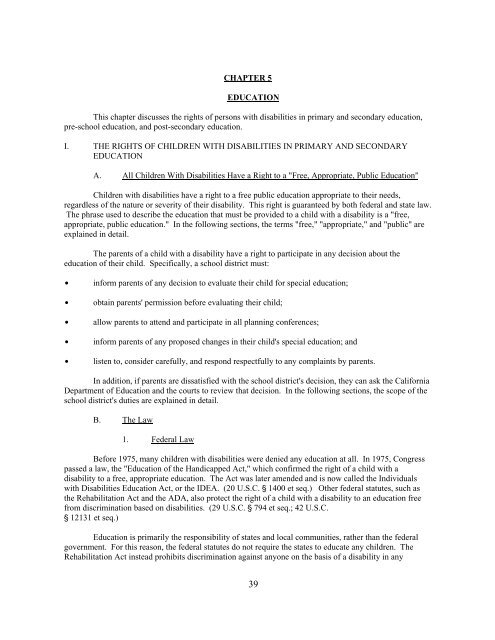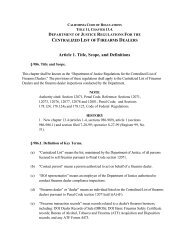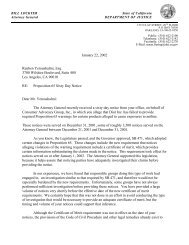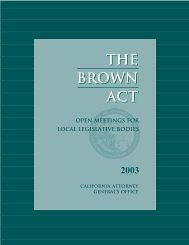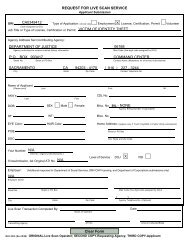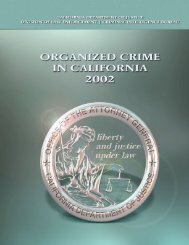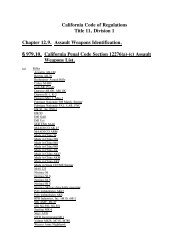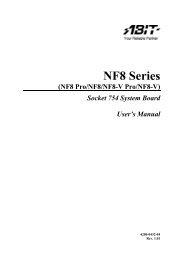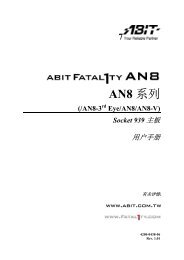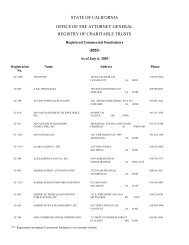Legal Rights of Persons With Disabilities - Ossh.com
Legal Rights of Persons With Disabilities - Ossh.com
Legal Rights of Persons With Disabilities - Ossh.com
Create successful ePaper yourself
Turn your PDF publications into a flip-book with our unique Google optimized e-Paper software.
CHAPTER 5<br />
EDUCATION<br />
This chapter discusses the rights <strong>of</strong> persons with disabilities in primary and secondary education,<br />
pre-school education, and post-secondary education.<br />
I. THE RIGHTS OF CHILDREN WITH DISABILITIES IN PRIMARY AND SECONDARY<br />
EDUCATION<br />
A. All Children <strong>With</strong> <strong>Disabilities</strong> Have a Right to a "Free, Appropriate, Public Education@<br />
Children with disabilities have a right to a free public education appropriate to their needs,<br />
regardless <strong>of</strong> the nature or severity <strong>of</strong> their disability. This right is guaranteed by both federal and state law.<br />
The phrase used to describe the education that must be provided to a child with a disability is a "free,<br />
appropriate, public education." In the following sections, the terms "free," "appropriate," and "public" are<br />
explained in detail.<br />
The parents <strong>of</strong> a child with a disability have a right to participate in any decision about the<br />
education <strong>of</strong> their child. Specifically, a school district must:<br />
$ inform parents <strong>of</strong> any decision to evaluate their child for special education;<br />
$ obtain parents' permission before evaluating their child;<br />
$ allow parents to attend and participate in all planning conferences;<br />
$ inform parents <strong>of</strong> any proposed changes in their child's special education; and<br />
$ listen to, consider carefully, and respond respectfully to any <strong>com</strong>plaints by parents.<br />
In addition, if parents are dissatisfied with the school district's decision, they can ask the California<br />
Department <strong>of</strong> Education and the courts to review that decision. In the following sections, the scope <strong>of</strong> the<br />
school district's duties are explained in detail.<br />
B. The Law<br />
1. Federal Law<br />
Before 1975, many children with disabilities were denied any education at all. In 1975, Congress<br />
passed a law, the "Education <strong>of</strong> the Handicapped Act," which confirmed the right <strong>of</strong> a child with a<br />
disability to a free, appropriate education. The Act was later amended and is now called the Individuals<br />
with <strong>Disabilities</strong> Education Act, or the IDEA. (20 U.S.C. ' 1400 et seq.) Other federal statutes, such as<br />
the Rehabilitation Act and the ADA, also protect the right <strong>of</strong> a child with a disability to an education free<br />
from discrimination based on disabilities. (29 U.S.C. ' 794 et seq.; 42 U.S.C.<br />
' 12131 et seq.)<br />
Education is primarily the responsibility <strong>of</strong> states and local <strong>com</strong>munities, rather than the federal<br />
government. For this reason, the federal statutes do not require the states to educate any children. The<br />
Rehabilitation Act instead prohibits discrimination against anyone on the basis <strong>of</strong> a disability in any<br />
39


